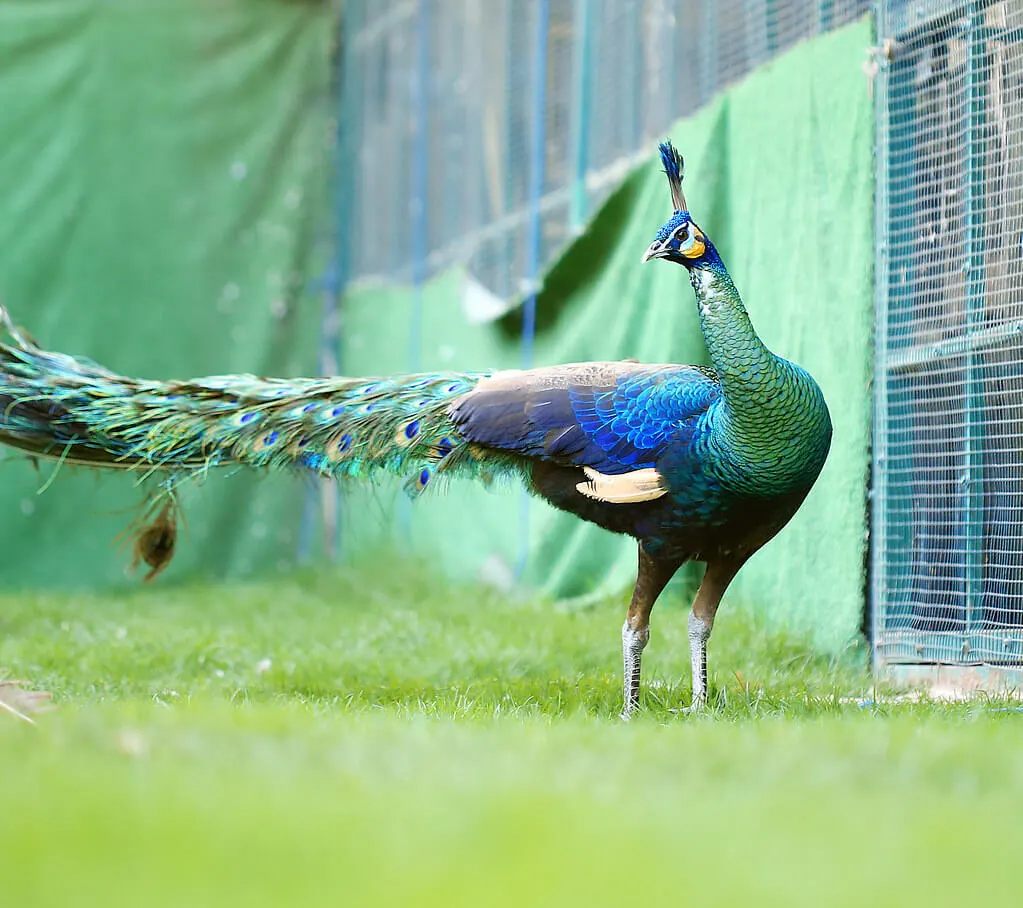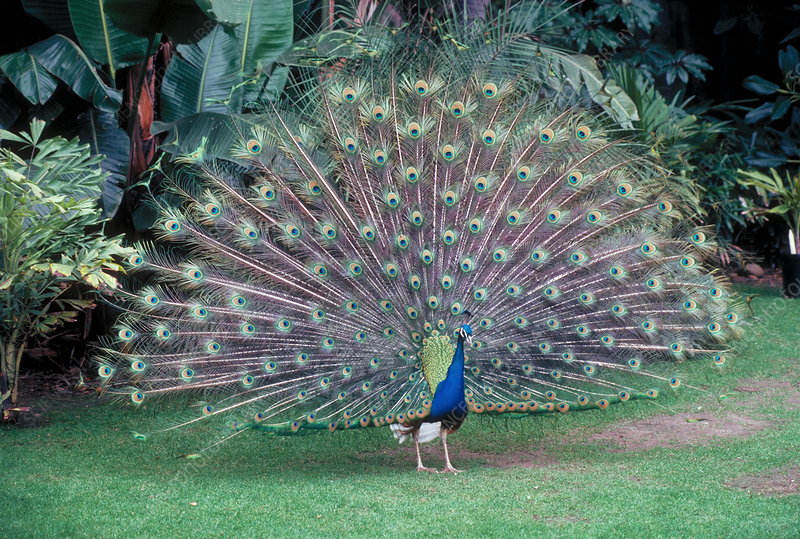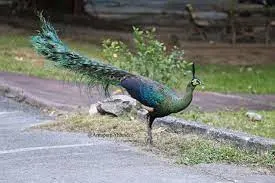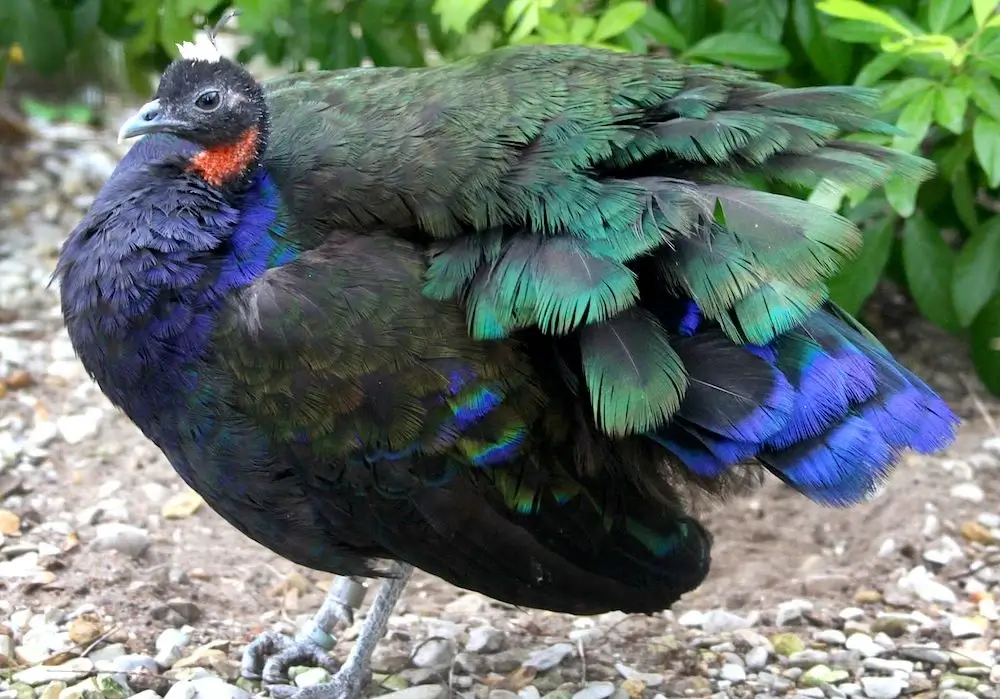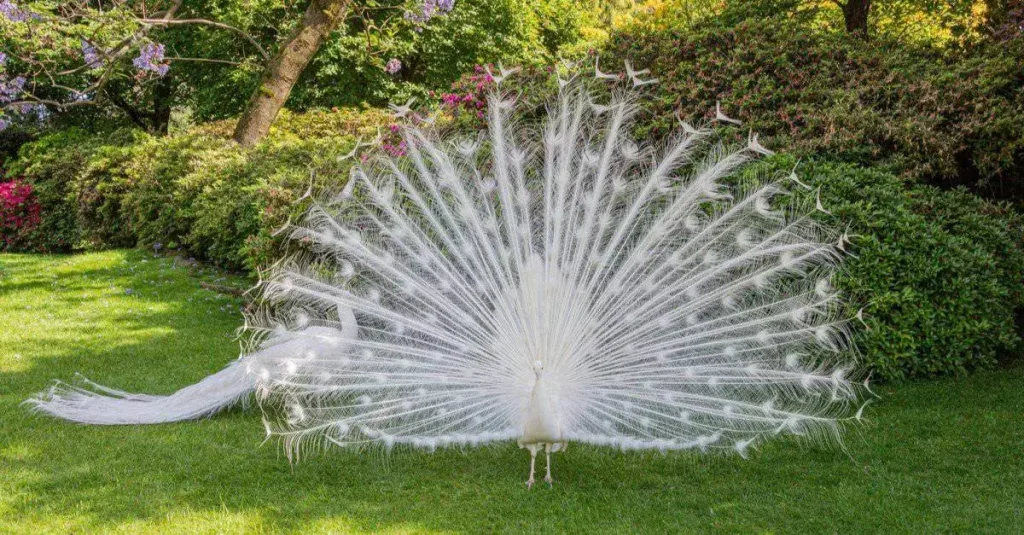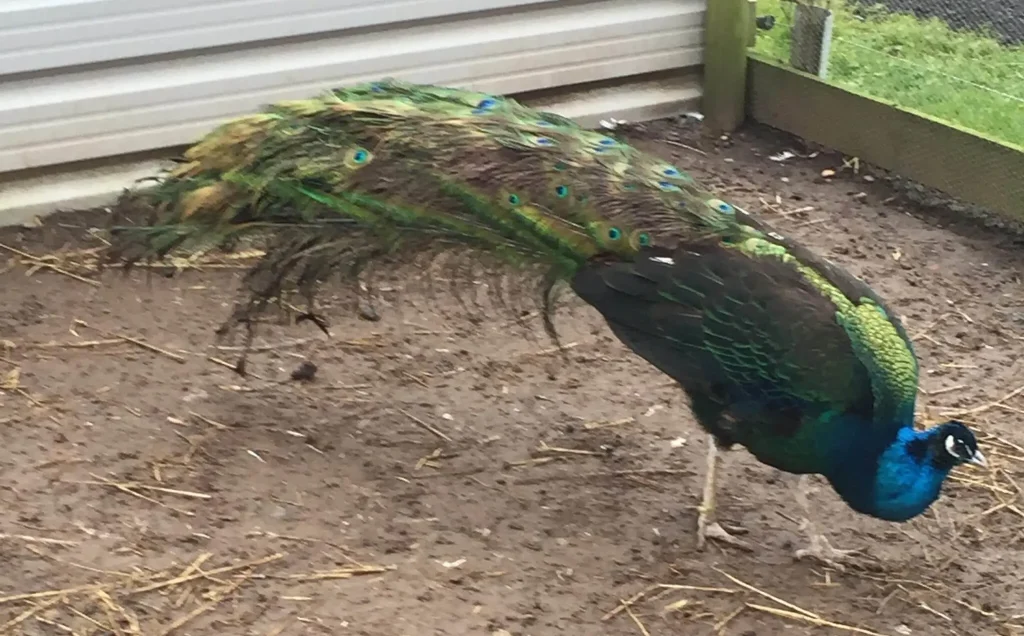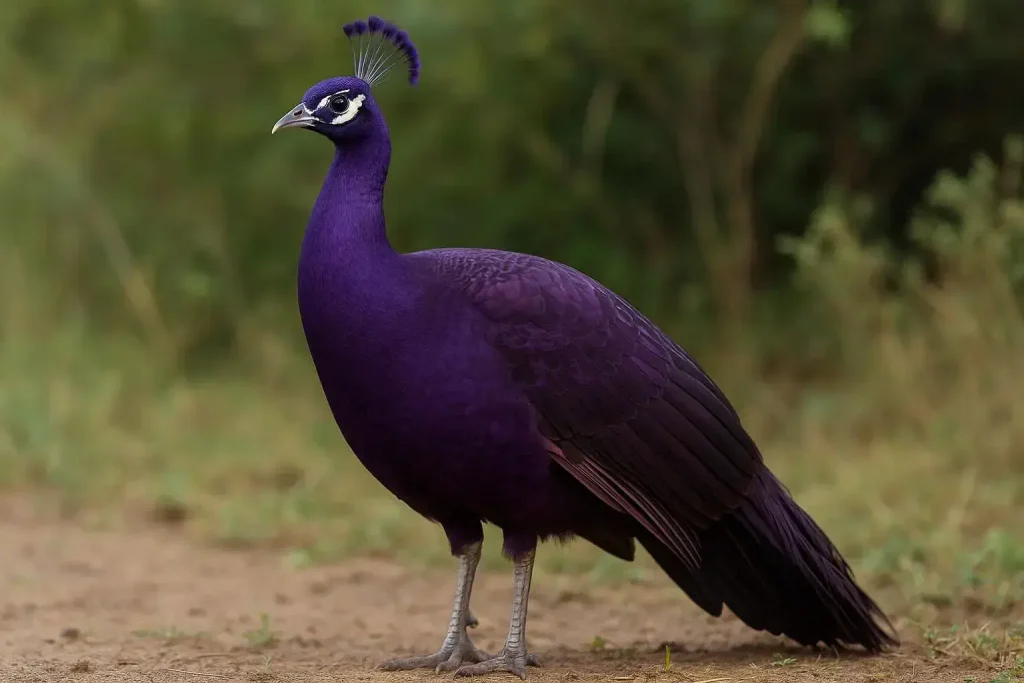🦚 Spalding Peafowl – A Stunning Hybrid Celebrated for Its Beauty and Grace
🌟 Introduction
The Spalding Peafowl is a breathtaking hybrid bird that combines the elegance of the Indian Blue Peafowl and the vibrant beauty of the Green Peafowl. Admired for their striking plumage, tall posture, and gentle demeanor, Spalding Peafowls are beloved by bird enthusiasts, breeders, and nature lovers alike. More than just visually stunning, these birds are intelligent, social, and enrich the environments they live in.
📜 Origin and Background
Spalding Peafowls were developed by thoughtfully breeding two distinct species:
- 🔵 Indian Blue Peafowl (Pavo cristatus)
- 🟢 Green Peafowl (Pavo muticus)
This hybridization results in birds with a unique blend of features, often larger in stature and exhibiting diverse, iridescent color patterns. Spalding Peafowls are now raised worldwide for their ornamental beauty and enriching presence in aviaries, gardens, and conservation centers.
🧬 Physical Appearance
Each Spalding Peafowl displays a unique appearance influenced by its genetic makeup. Key physical traits include:
- 🌈 Coloration: Ranges from emerald green and metallic blue to bronze and gold highlights
- 📏 Height: Typically taller than both parent breeds
- 🦚 Tail (Train): Long and ornate with bold, eye-catching patterns (in males)
- 🎩 Crest: A tighter, more upright crest compared to Indian Blue Peafowls
- 🟤 Females: Display more colorful plumage than other peahen types, often with subtle green hues
Their graceful posture and shimmering feathers make them stand out in any setting.
👥 Behavior and Temperament
Spalding Peafowls are intelligent, alert, and can be both curious and cautious depending on their environment. With consistent and respectful interaction, they often become confident and friendly.
- 🧠 Quick learners with keen awareness
- 🗣️ Known for their vocal calls, especially during the mating season
- 🤝 Can form strong bonds with their caretakers
- 🚶 Best kept in environments that allow calm exploration and safe movement
Their personality often reflects their upbringing, so early socialization is key.
🍎 Nutrition and Diet
A balanced, nutrient-rich diet helps maintain their vibrant feathers and supports overall well-being.
- 🌾 Whole grains like corn, rice, and millet
- 🥬 Fresh vegetables such as spinach, lettuce, and peas
- 🍎 Occasional fruits, including apples and berries (cut into safe sizes)
- 🦗 Protein sources like mealworms, crickets, or boiled eggs
- 💧 Clean, fresh water should always be available
Supplements like calcium and vitamins can support their health during molting and egg-laying seasons.
🏞️ Habitat and Care Needs
Spalding Peafowls thrive in environments that are spacious, safe, and enriched with natural features.
- 🌳 Large, secure enclosures with shaded areas and greenery
- 🪵 Roosting areas or trees to rest comfortably
- 🏡 Shelters to protect from extreme weather
- 🦺 Fencing or netting to safeguard from predators
They enjoy exploring and foraging, so adding variety to their living space promotes their well-being.
👶 Breeding and Family Life
Spalding Peafowls breed seasonally and can be attentive and protective parents when raised with care.
- 💃 Males engage in elaborate courtship displays
- 🥚 Females typically lay 4–6 eggs per clutch
- ⏳ Eggs hatch after around 28–30 days of incubation
- 🐣 Chicks are independent soon after hatching, but benefit from attentive care
Conscious breeding practices help maintain healthy, ethically raised populations.
🩺 Health and Lifespan
With proper care, Spalding Peafowls can enjoy long, healthy lives.
- 🧬 Lifespan: Typically 20–25 years
- 🩹 Common issues: Parasites, respiratory infections, and feather loss
- 🧼 Preventive care: Clean housing, regular checkups, and vaccinations
- 🌞 Exposure to natural light and exercise boosts their overall vitality
Partnering with a knowledgeable avian veterinarian is essential for their ongoing care.
🎭 Cultural and Visual Appeal
Spalding Peafowls are admired around the world for their beauty and symbolic presence.
- 🎨 Valued for their vivid, hybrid coloring and tall, regal posture
- 🏡 Popular in parks, aviaries, botanical gardens, and cultural spaces
- 🌐 Featured in art, media, and educational exhibits for their uniqueness
They bring natural elegance to any setting while sparking curiosity and admiration.
🎉 Fascinating Facts About Spalding Peafowls
- 🧬 Their appearance depends on the mix of Indian Blue and Green heritage in each bird
- 🪶 Some Spaldings can have extra-long train feathers up to 6 feet!
- 📸 They’re favorites in bird photography and exhibitions due to their unique beauty
- 🌍 Their gentle nature makes them great ambassadors in conservation programs
❓ Frequently Asked Questions
Q1: Is the Spalding Peafowl a separate species?
A: No, it is a hybrid between the Indian Blue and Green Peafowl, not a distinct species.
Q2: Are they suitable for families or new bird keepers?
A: They require space and attention, so they are best suited for individuals or families with some experience in bird care.
Q3: Can they be kept with other birds?
A: Yes, if introduced properly and with adequate space. They generally coexist peacefully but may show territorial behavior during the breeding season.
Q4: How do I know if my peafowl is a Spalding?
A: A Spalding often shows a taller body, tight feather crest, and greenish sheen. A breeder or genetic test can confirm.
Q5: Are Spalding Peafowls rare?
A: They are not as common as purebred peafowls and are considered rare in some regions due to their hybrid status.
✅ Conclusion
The Spalding Peafowl is a captivating hybrid that combines the best qualities of its parent species. With their brilliant colors, graceful statures, and engaging personalities, they offer joy and beauty to those who care for them responsibly. Whether you’re a seasoned avian enthusiast or a curious learner, welcoming a Spalding Peafowl into your space can be a deeply rewarding experience—one that celebrates biodiversity, harmony, and the wonder of nature.
